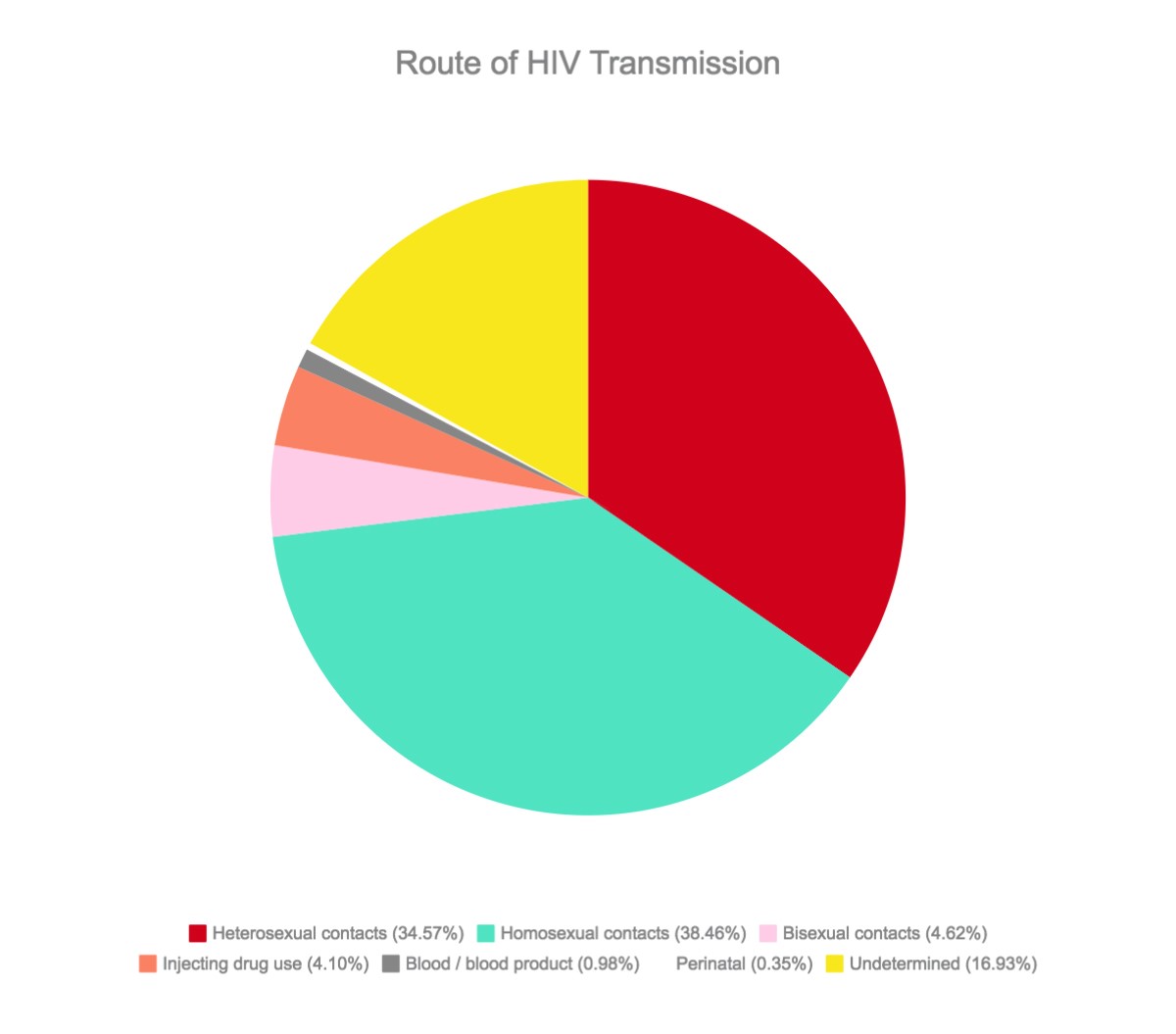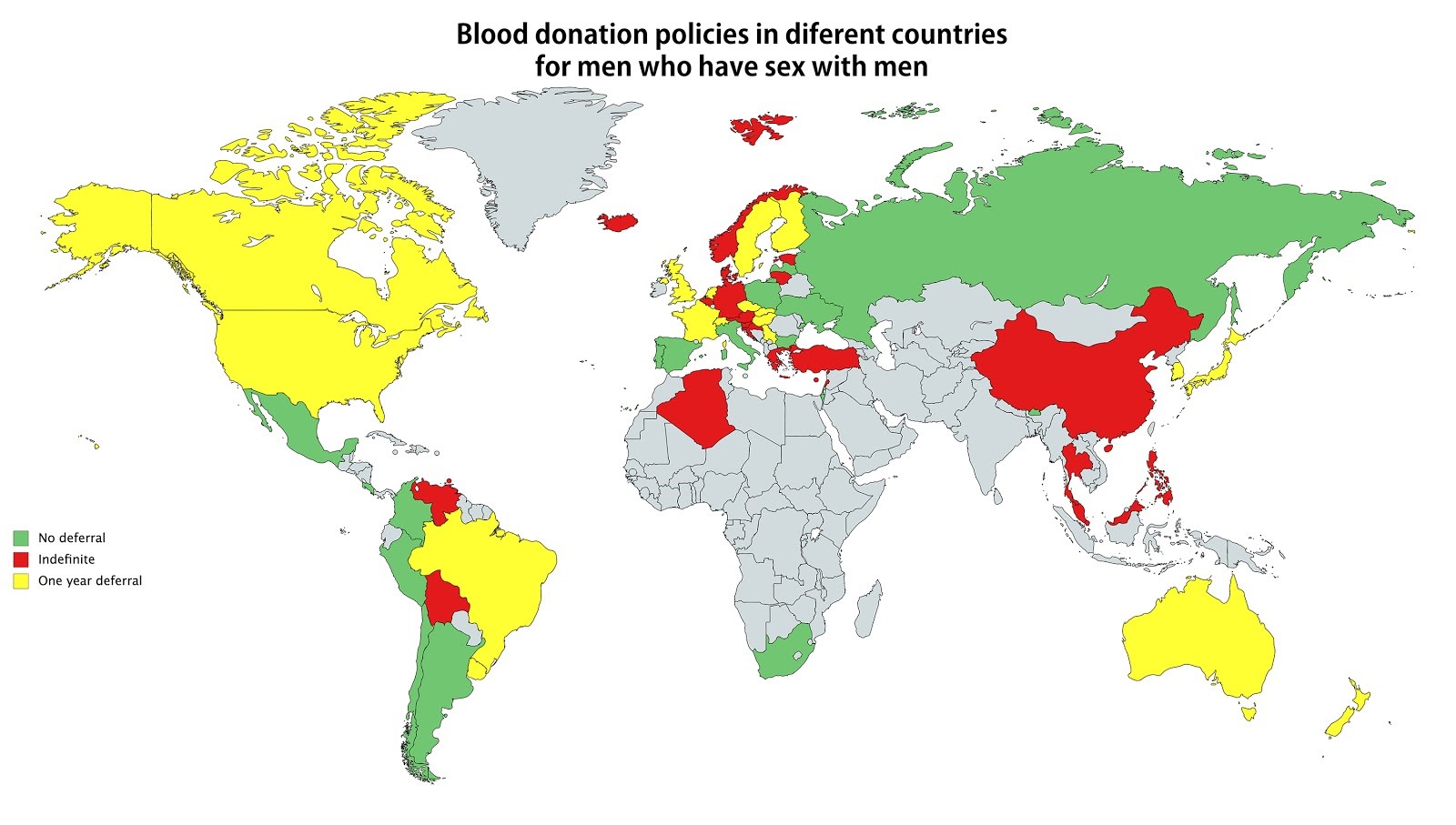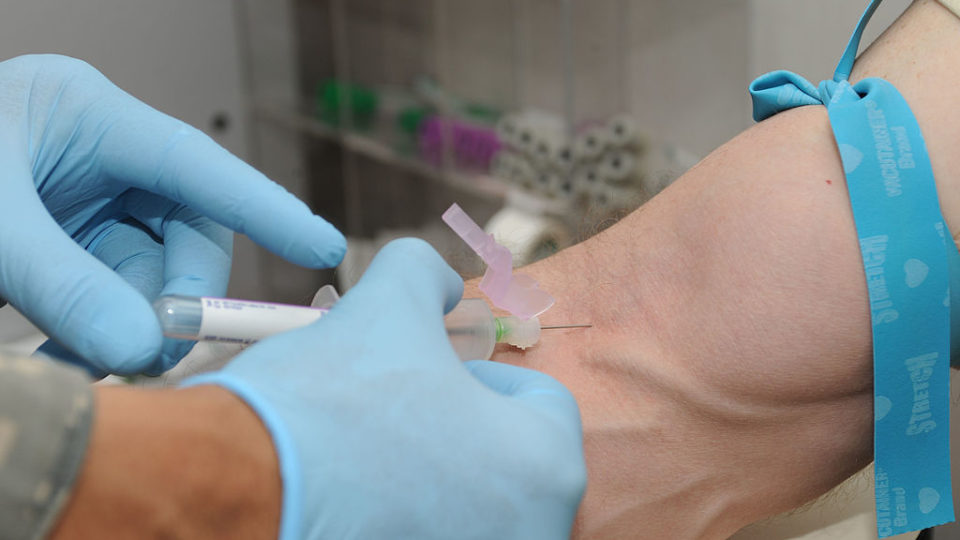A long-standing ban on blood donations from gay men may be set to tumble soon, officials from the Hong Kong Red Cross’ Blood Transfusion Service (BTS) said this week, thanks to a push from a local Christian student group.
Current policy permanently disqualifies any man from donating blood if they have ever engaged in gay sex, protected or not. But a move is afoot that could open the door for donations — though only for the abstinent.
“Dr. Lee (chief executive and medical director of the Red Cross) suggested that our policy could be changed in the future to allow men not having male-to-male sex for a year to donate their blood, and we’re looking into this direction,” Red Cross spokesperson Henry Man told Coconuts Hong Kong.
The debate over easing BTS’ gay ban was pushed back into the limelight on Sunday (June 4th) when the Red Cross published a statement in response to a Christian youth group’s call for its relaxation at its Annual Donor Award Ceremony.
Student Christian Movement of Hong Kong (SCMHK) is pushing for a policy change that would only ban gay blood donors who have had unprotected sex in the past three months, a move that would bring Hong Kong in line with a number of other developed countries.
SCMHK said in a statement that BTS needed to stop being an “accomplice of stereotyping homosexuality”, adding that HIV infections were caused mostly by unsafe sex and it is “unfair and unreasonable” to solely target male-to-male intercourse.
Currently, BTS “stringently” screens donors via a health history questionnaire which includes questions for male donors about their sexual history, according to its website. Those who have engaged in homosexual sex are “permanently deferred”.
In 2013, People Power lawmaker Raymond Chan, Hong Kong’s only openly gay legislator, was personally barred from blood donation and described BTS’ policy as “absolutely unreasonable”.
Natalie Ng, chairlady of SCMHK, said the gay ban is a “derogatory differential treatment to gay men”. She explained the general public might interpret the ban to mean that all blood from homosexual people is unsafe to use.
Despite the Red Cross’ potential easing of the ban, Ng said a one-year deferral is still “overly conservative”, considering the improvements that have been made in blood testing technology.
In 2007, the window for HIV testing results was shortened from 22 days to just six thanks to the application of Nucleic Acid Testing technology, a sensitive test that is capable of detecting minute quantities of viral particles in a blood sample, according to the Red Cross’ website.
Ng said the one-year time frame does not help “rectify” the differential treatment towards gay men. “We strongly urge for a three-month deferral period [which we think] is enough,” she added.
Chan also expressed dissatisfaction towards BTS’ proposal, which he found to still be unreasonably targeting gay people.
“The rule shouldn’t be targeting at a certain type of sex orientation, but unsafe sex, regardless of gender,” said Chan. Any person who is engaging in unsafe sex is at risk of sexually transmitted diseases and should be screened, he added.
“It is not the period of deferral that matters,” said Chan. Shortening the deferral period of gay men does not eliminate BTS’ “intrinsic discrimination or stereotype” towards gay people, he explained.
The Equal Opportunities Commission (EOC), however, said it is “pleased” to see BTS considers reviewing its blood donation policy. “[BTS’ policy] can be modified to allow all donors who have equally low risks in blood or sexually transmitted diseases to donate blood, irrespective of their sexual orientation,” EOC said in an email to Coconuts Hong Kong.
Marco Wong, head of marketing and communications at Aids Concern, also said he “welcomes” BTS’ decision, calling it an “improvement” on current policy.
“MSM (men who have sex with men) can be infected by HIV, but so can heterosexual people. HIV is not a homosexual disease,” Wong said. Unprotected sex puts people of any gender of sexual orientation at an equal risk of contracting HIV, he explained.

According to the Virtual AIDS Office of Hong Kong, the number of people who contracted HIV from homosexual sex (38 percent) is only slightly higher than those who contracted it from heterosexual sex (35 percent).
He said the one-year deferral does not only destigmatize public misconception towards homosexuality, but also give a chance to all well-intentioned people to help those in need, as well as alleviating the Red Cross’ blood shortage.
The Red Cross issued urgent public appeals for blood donations in four consecutive weeks across April and May due to great demand from the ageing population and a general decrease in the number of young donors, according to its Facebook page.
Chan, however, said even if the one-year deferral policy is implemented, it will not pose a great impact on the number of blood donors. “It is quite unreasonable to ask a gay adult not to have any sex for a year. But at least it’s better than nothing, and won’t be as unreasonable [than the current policy] to gay people,” he said.
Ko Chung-lai from SCMHK said the Red Cross should be aligning its policy with their overseas counterparts that allow MSM to give their blood, SCMP reports. Most countries require direct questioning regarding men’s sexual history before donating blood, but the length of deferral varies.

The United States, United Kingdom, Sweden, and Canada have all lifted their bans on MSM blood donors to a one-year deferral. Japan reduced its previous one-year deferral period to six months following the introduction of more sensitive blood testing. Other countries, such as Italy, Spain, and South Korea, do not require deferrals at all, and use thorough blood tests to determine a donor’s eligibility regardless of sexual orientation.
However, permanent bans on MSM donors are still implemented in some countries, including Denmark, Germany and China.
The Red Cross said it would be aligning its standard with that of other developed countries in the future. However, no schedule has been provided so far. “The BTS has been meeting different bodies in society over the past two years and will continue to communicate with all stakeholders [on the issue],” the group said in a statement.
“The Red Cross takes so long time to change it policy because it needs to follow the example of other developed countries. It wants to play safe,” said Chan. “But some change is better than nothing.”




